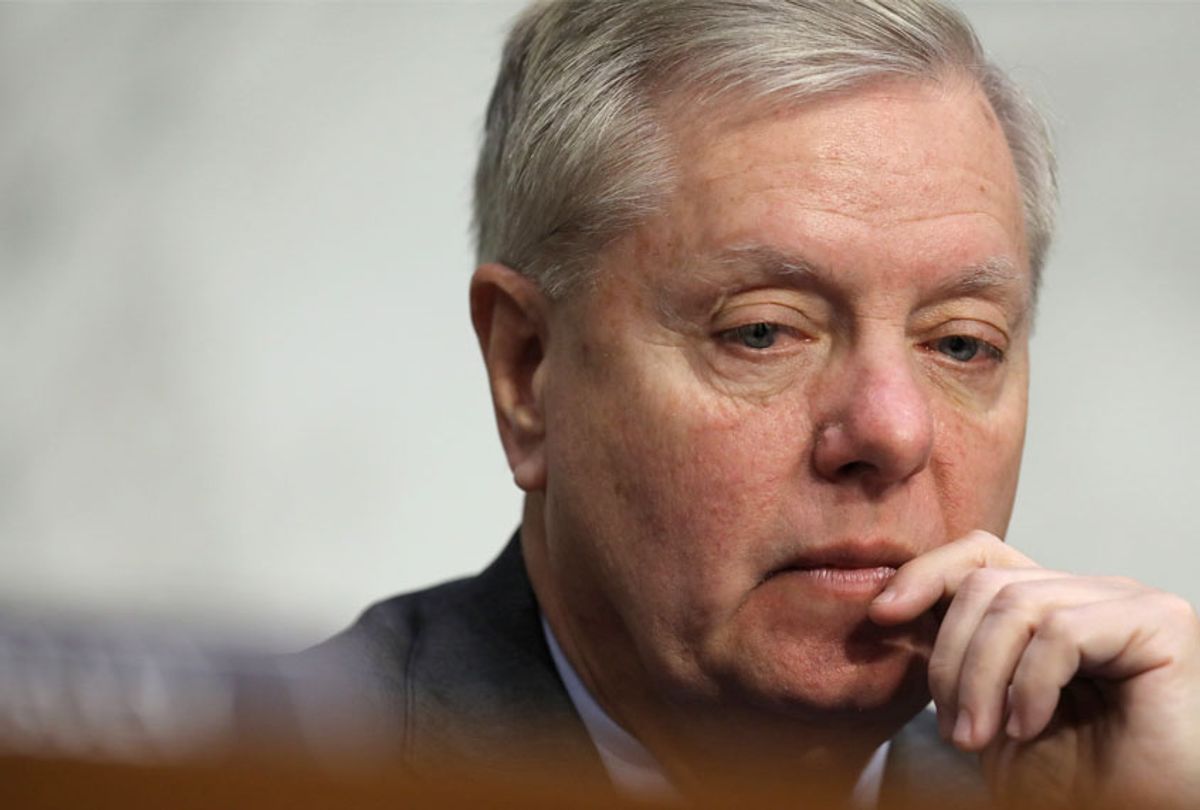It’s a question that has frequently made the rounds in liberal circles: what happened to Lindsey Graham?
The GOP senator from South Carolina was once counted among the more hostile members of his party toward President Donald Trump. He once called Trump a “race-baiting xenophobic bigot,” and warned fellow Republicans, “If we nominate Trump, we will get destroyed … and we will deserve it.” Even after Trump took office, he frequently bucked the president on matters of Russia and the special counsel investigation. Today, however, Graham prefers to cast himself as Trump’s biggest ally. He famously threw a tantrum in defense of Brett Kavanaugh during the Senate hearing on his sexual assault allegations, and backed Trump’s declaration of a national emergency to end-run Congress on his border wall.
That seeming switch of attitude has led to a great deal of speculation by Graham’s partisan opponents, with some fingering a golf outing Graham had with Trump in 2017 as the turning point, and freshman Rep. Ilhan Omar (D-MN) even suggesting Graham might have been “compromised.”
It is worth noting that Graham did not really change all that much. He votes with Trump 90 percent of the time, and did so even back when he was a more vocal critic of the president. So if there is a change, it is more in Graham’s words shifting to match his deeds than anything more fundamental.
But insofar as he did change his attitude, writes Mark Leibovich of The New York Times, he is perfectly open about the reasons why:
Graham reminded me that when McCain was facing re-election in 2010, he turned himself into “the most conservative member of the U.S. Senate.” That was the race in which McCain claimed that he never embraced the “maverick” label, and people were asking, “What happened to John McCain?” Graham chuckled at the memory.
. . . Graham would shortly head over to the Capitol for Trump’s State of the Union address, about which the president called him a few hours earlier, seeking input. “Should I go conciliatory or to-hell-with-it?” Trump asked him, according to Graham. “What kind of tone should I take?” In recounting this latest exchange, Graham shook his head and half shrugged. “I have never been called this much by a president in my life,” he told me. His tone reflected a mixture of amazement and amusement, with perhaps a dash of awe. “It’s weird, and it’s flattering, and it creates some opportunity. It also creates some pressure.”
In other words, Graham took a hardline pro-Trump position because his state is hardline pro-Trump. The most recent Morning Consult poll shows the president above water 9 points with South Carolinians, and that figure has not been negative in a single month since his presidency began. So it benefits Graham to both publicly praise Trump, and to gain access to him so that he can boast to constituents that he has Trump’s confidence.
For everyone wondering what happened to Graham, the answer, it seems, is staring them right in the face.




Shares